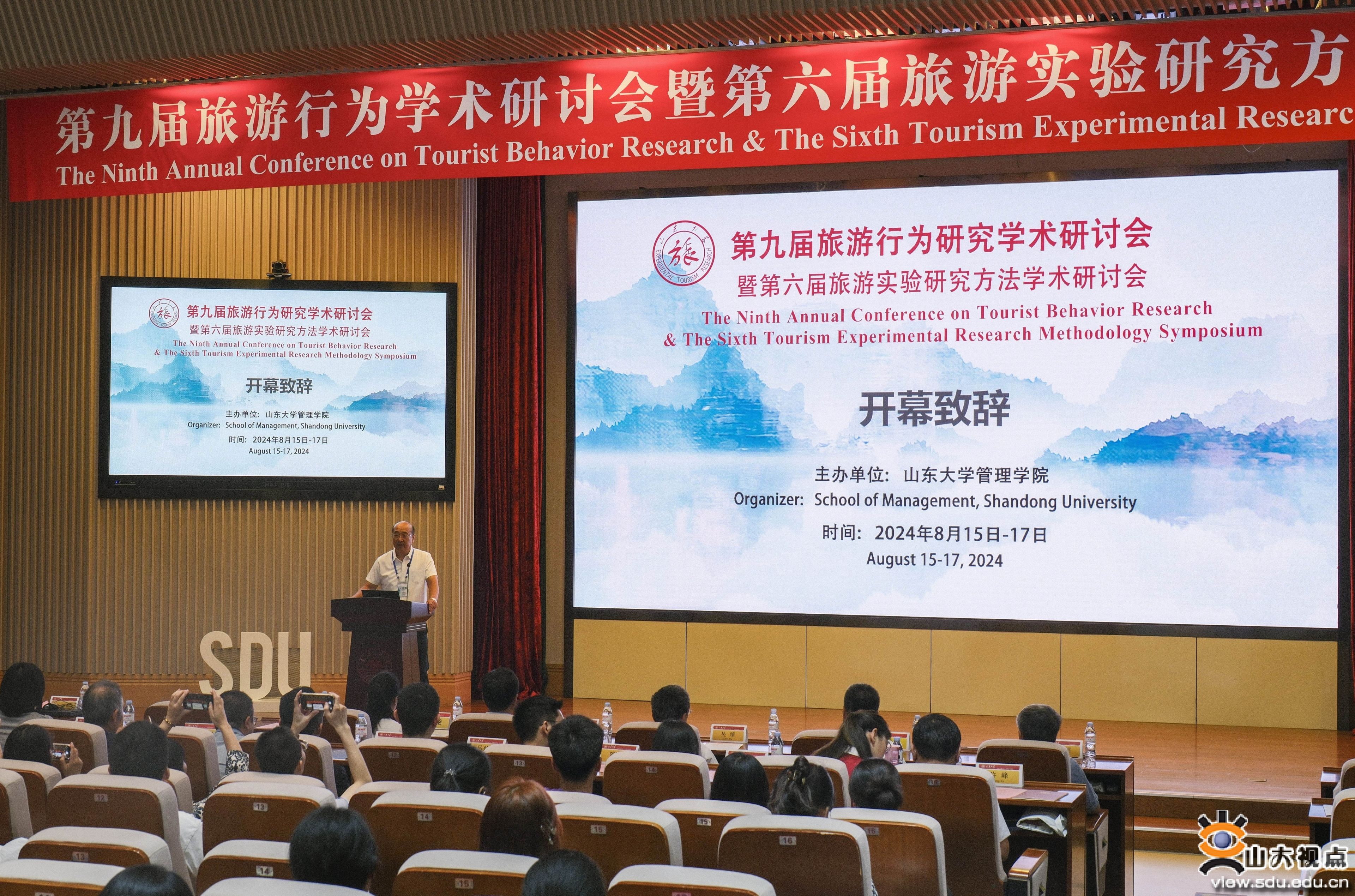
From August 15th to 17th, the Ninth Annual Conference on Tourist Behavior Research and the Sixth Tourism Experimental Research Methodology Symposium, themed "Research on High-Quality Tourism Development and Tourist Behavior" were held. The seminars were hosted by the Department of Culture and Tourism of the School of Management, Shandong University. Tian Yanying, the second-level inspector from the Shandong Provincial Department of Culture and Tourism, and Wu Zhen, Vice President of Shandong University, attended the opening ceremony.
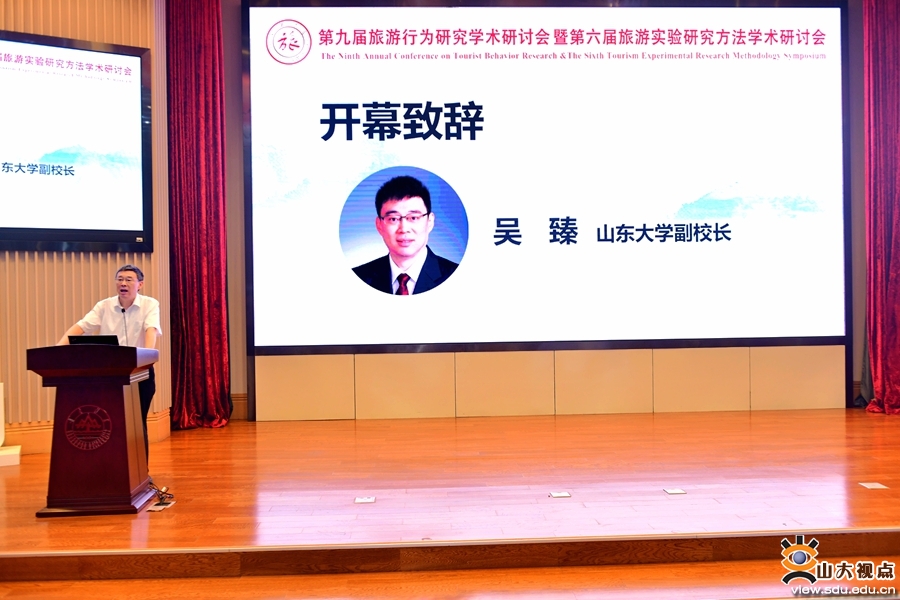
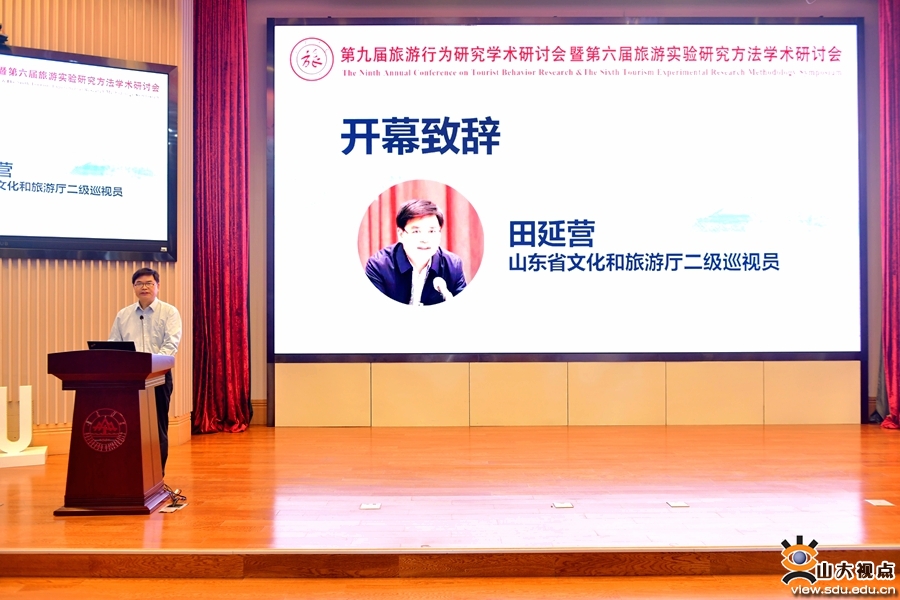
Wu and Tian delivered speeches respectively.
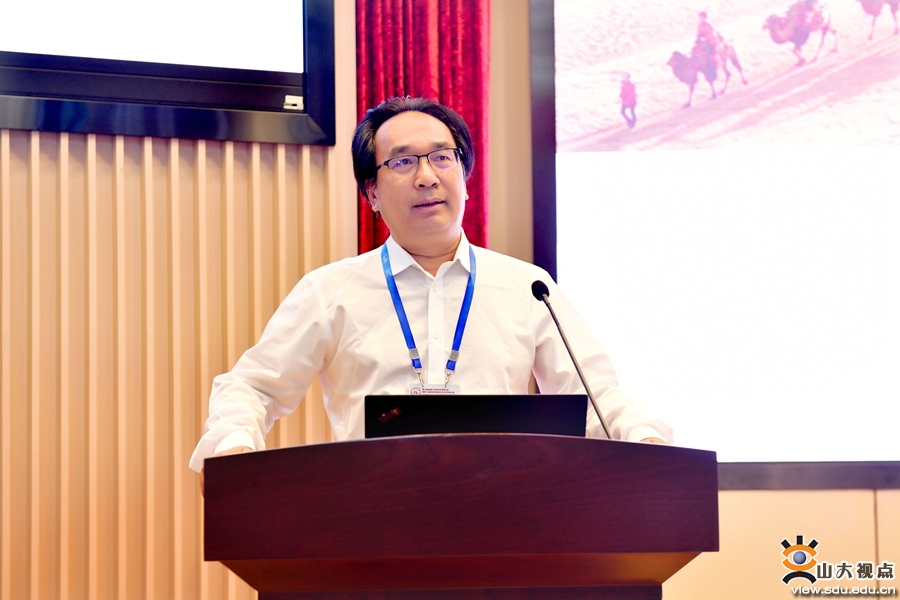
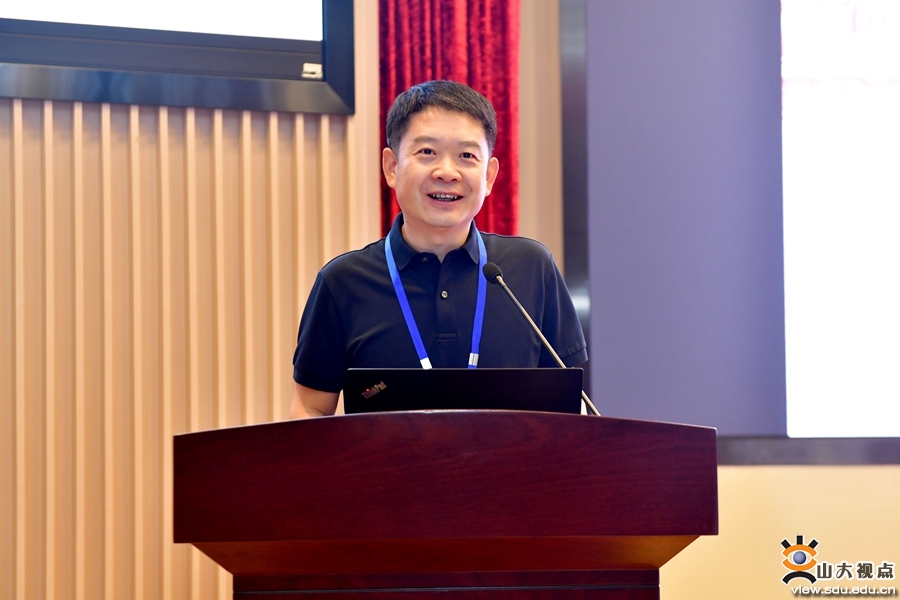
During the keynote speech session, 13 experts and scholars from domestic and foreign universities and leading tourism companies delivered keynote presentations. Professor Xu Feng, Associate Professors Wang Sujie and Han Ruobing from Shandong University presided over the sessions. Professor Wu Bihu from Peking University delivered a keynote speech titled "Large Model for Travel Records in a Vertical Sector", exploring the role of large-model technology in driving the innovation and development of the cultural and tourism industries. Xu Huiqun, Chair Professor of the Hong Kong Polytechnic University, and also Editor-in-Chief of Tourism Management, delivered a keynote titled "The Rise of Experimental Design Studies: A Note of Caution", highlighting how interdisciplinary research, repeated testing, and variable selection can address current challenges. Professor Xie Yanjun from Hainan University spoke on "The Spirit of Questioning and Verification Methods in Tourism Academic Research", discussing the importance of the questioning spirit in tourism research from four perspectives: the spirit of questioning, focus of questioning, examples of questioning, and methods of verification. Professor Catheryn Khoo from Torrens University, Australia, presented "The Consumption of Cultural Heritage Tourism", which examined the management of cultural heritage from the perspective of women's empowerment, starting from the origins of research on female tourism. Professor Chen Ye from Nankai University shared insights on the meaning of tourism in a presentation titled "The Meaning of Tourism: From Experience to Growth". Professor Noel Scott from Edith Cowan University in Australia, also an adjunct professor at Taylor’s University and Mataram University, delivered an online keynote speech "Understanding Emotions, Experiences, Transformation, and Well-being Using Cognitive Psychology", in which he outlined tourism’s potential impact on well-being and transformative growth. Associate Professor Chen Zengxiang from Sun Yat-sen University discussed the meaning and goals of experimental preregistration in his speech "Experiment and Preregistration: Origins and Practice". He explained how preregistration reduces research bias, enhances experimental transparency, promotes experimental reproducibility, improves research quality, and fosters experimental trust, as well as analyzed the research development trends of preregistered experiments in the fields of business administration and tourism. Associate Professor Wang Ying from Hong Kong Polytechnic University presented on "Tourist Experience in a Landscape of Conflicted Power", pointing out that tourism destinations are often sites of conflict between different interest groups, involving conflict such as resource allocation, display of culture, protection and development of enviroment. Professor Lv Xingyang from Southwestern University of Finance and Economics gave a keynote speech titled "Tourism Marketing Testing Based on Neuroscience Experiments", introducing the process of using neuroscience for experiments and identifying elements that elicit positive emotions, which provided reference for marketers to formulate more effective marketing strategies. Associate Professor Li Shanshi from Xiamen University delivered a presentation titled "From Inspiration to Action: Reflections and Prospects on Tourism Field Experiments", during which he provides a detailed review of the literature statistics related to field experiments in the tourism domain, the position, sequence, and structure of field experiments in tourism research design, along with the characteristics and four types of field experiments. Professor Yang Yang from Temple University, the United States, discussed the significance of user-generated content (UGC) data, such as online reviews, in tourist behavior research in his speech "Researching Tourist Behavior Based on Online Reviews". Senior researcher Wang Jun from Meituan Research Institute presented on "New Trends in Tourism Development from Meituan Data", pointing out that Meituan's data covers a rich variety of scenarios in the life service industry, and the complementarity between real platform data and national statistical data provides a powerful reference for studying new trends in cultural tourism development. Professor Wang Ning delivered a report titled "Abductive Reasoning and Explanation-Driven Knowledge Innovation".
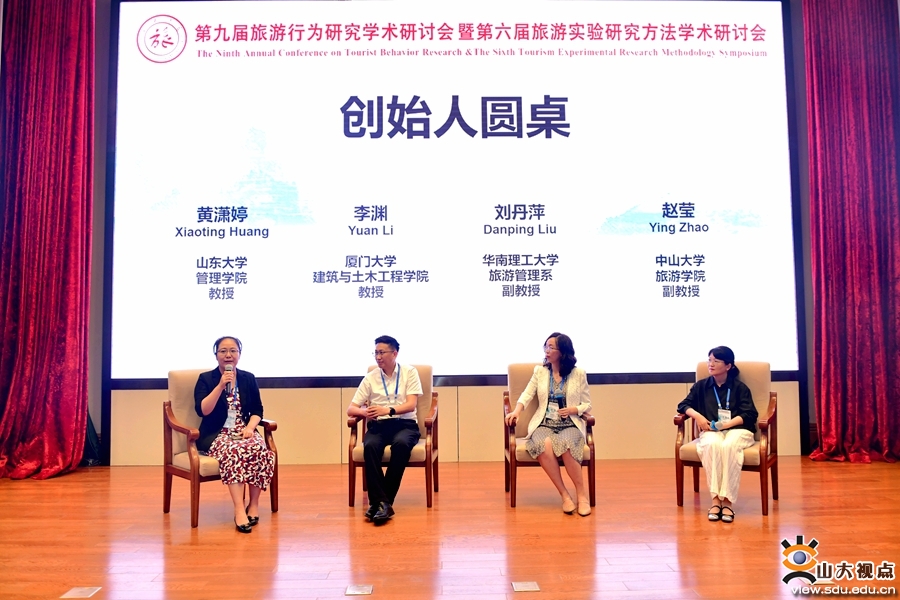
Professor Huang Xiaoting from Shandong University, Professor Li Yuan from Xiamen University, Associate Professor Liu Danping from South China University of Technology, and Associate Professor Zhao Ying from Sun Yat-sen University participated in the Founder's Roundtable Forum of the Academic Seminar on tourist behavior Research. Huang presided over the forum. Taking the topic of "When Behavior Meets Experiment: Experimental Paradigms in tourist behavior Research", Huang elaborated on the necessity of conducting tourist behavior research and the theoretical foundation for such research. She emphasized five paradigms of experimental research on tourist behavior and the application of experimental research in the field of tourist behavior studies. Professor Li Yuan gave a speech on "Climate Change and Tourism Response: Spatiotemporal Simulation of Outdoor Thermal Comfort and Optimization of Tourism Spaces", which introduced a model for outdoor thermal comfort spatiotemporal simulation, analyzing measurements across group, temporal, and spatial dimensions. Moreover, taking Gulangyu as a case study, Li provided recommendations for enhancing the tourism spaces based on measurement data. Liu Danping presented on "The Logic Behind the Popularity of Historic and Cultural Blocks: Based on the Theory of Digital Flexible Labor", covering topics such as the theory of digital flexible works, theory of digital commodities, digital labor studies, key events, and analysis of flexible worker profiles. Zhao Yingfu associate professor delivered a presentation titled "Is Camping Losing Its Appeal? Research on Changes in Urban Leisure Behavior and the Well-being Effect", exploring the relationship between tourism motivations and constraints, camping satisfaction, and well-being.
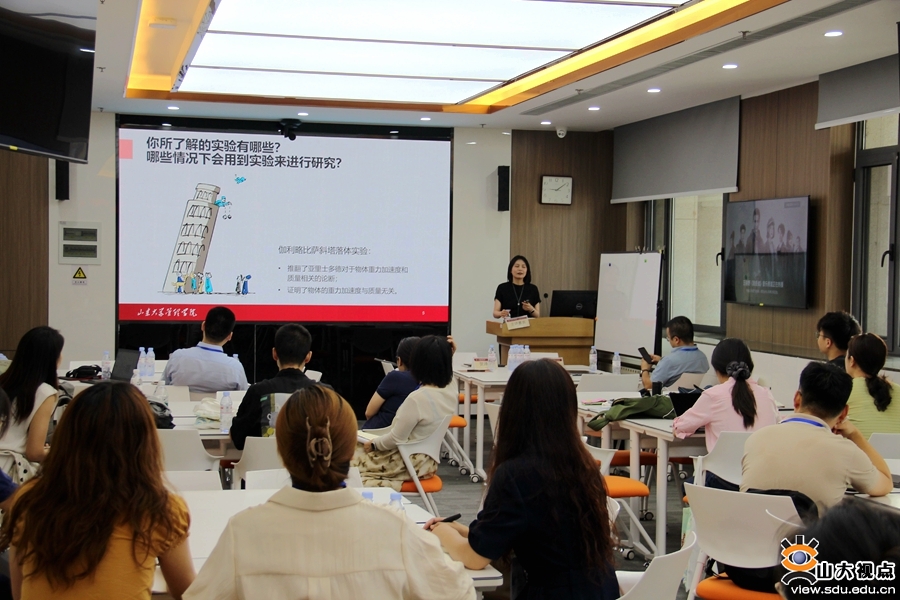
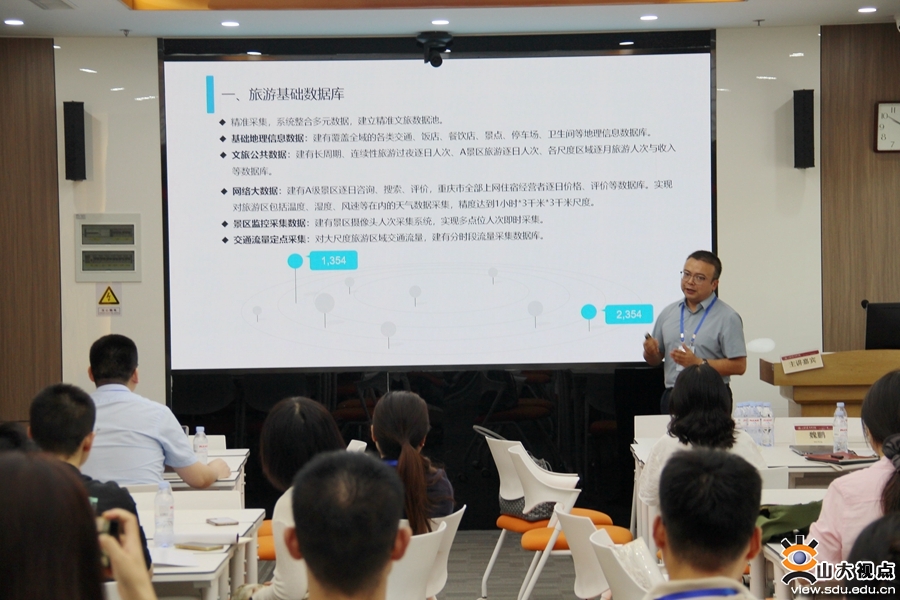
On the 16th, the symposium held beginner, intermediate, and advanced workshops on tourism experimentation respectively. During the beginner workshop, Professor He Zeya from Shandong University presented on "Application of Experimental Research Methods in Tourism Research", introducing case studies, objectives, basic ideas, and practical steps of experimental research. Professor Wei Peng from Southwest University focused on the application of experimental research methods in rural tourism development. He analyzed the crucial role of digital technology in building foundational tourism databases, conducting psychological testing of implicit attitudes toward tourism, and creating precise tourist profiles. Wei Peng also shared the explorations in constructing a digital platform for rural tourism.
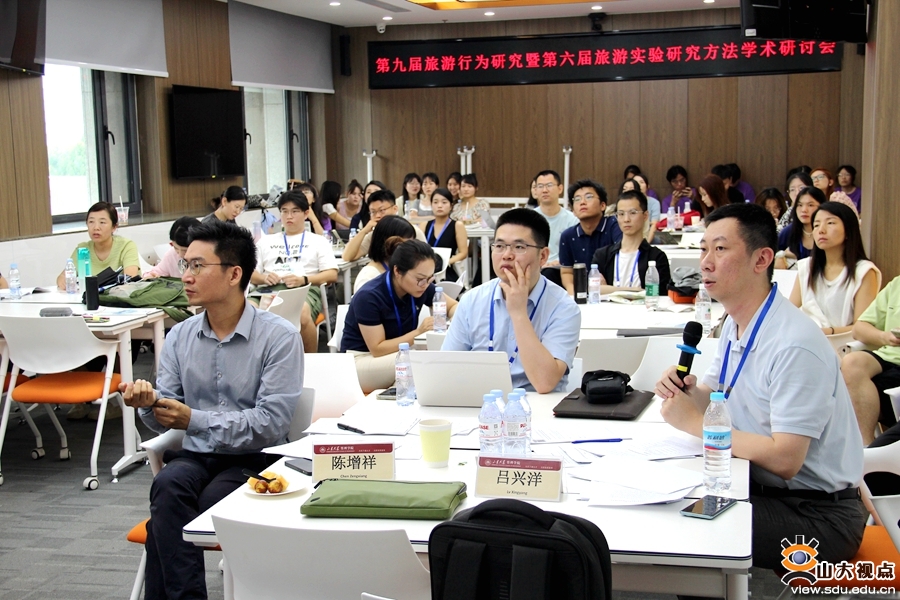
The intermediate workshop was conducted in the format of "graduate student sharing + guest commentary". Eight graduate students from South China University of Technology, Jinan University, and Shaanxi Normal University shared their research designs, which were then commented on by Chen Zengxiang from Sun Yat-sen University and Lv Xingyang from Southwestern University of Finance and Economics.
In the advanced workshop, Xie Yanjun from Hainan University spoke on " The Spirit of Questioning and Methods of Validation in Tourism Academic Research", introducing the concept of focus of inquiry and listing methods of validation. Wang Ning presented on "Qualitative Distant Reading in Exploratory Observation", explaining the rise of the distant reading methods.
On the morning of the 16th, the Youth Forum on Tourist Behavior was held, presided over by Professor Sun Ping. Professor Li Yuan from Xiamen University, Associate Professor Zhao Ying from Sun Yat-sen University, and Assistant Professor Sun Jinkun from Shandong University commented on the presentations and provided suggestions for improvement. Professor Wu Bihu from Peking University proposed improvements for experimental research design during the forum.
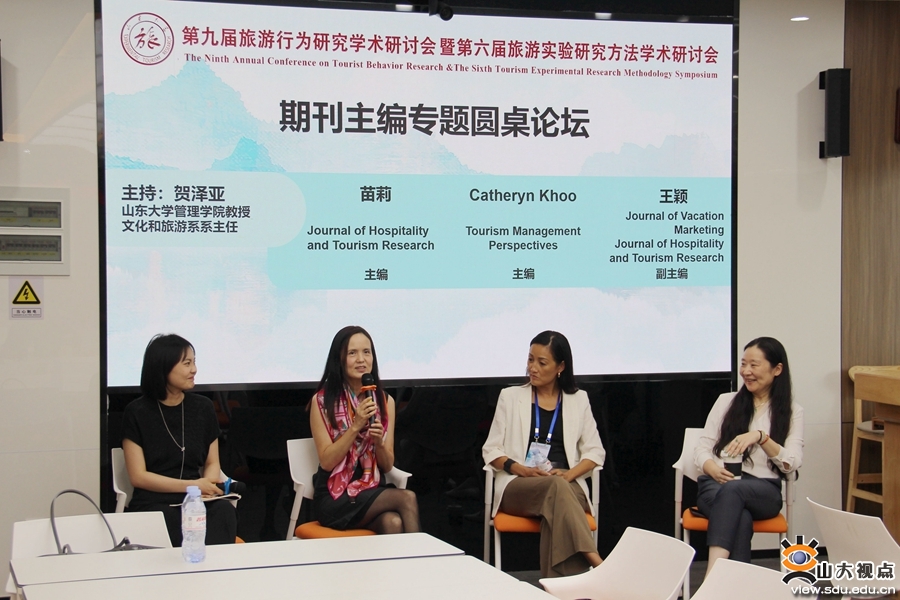
On the afternoon of the 16th, the Journal Editors’Roundtable Forum was held, attended by Miao Li, editor-in-chief of Journal of Hospitality and Tourism Research, Catheryn Khoo, editor-in-chief of Tourism Management Perspectives, and Wang Ying, associate editor of both Journal of Vacation Marketing and Journal of Hospitality and Tourism Research.
In the Electrodermal Activity (EDA) Workshop, Professor Li Shanshi from Xiamen University, drawing from his own experiences, elucidated the basic experimental methods of "Electrodermal Activity (EDA)". Through case studies, Li Shanshi systematically addressed key issues in experimental research across six major dimensions. Moreover, Li Shanshi collaborated with technicians to conduct live EDA experiments, further demonstrating the advantages and characteristics of the technology through real-time cloud data analysis. Dr. Lin Guyang from Hong Kong Polytechnic University used the "WHAT-WHY-HOW" structure to build a comprehensive and systematic knowledge framework on electroencephalography (EEG) and conducted EEG and eye-tracking experiments to explain technical details and research focuses, creating an immersive experimental experience.
Participants also visited the Tourist Behavior Laboratory of Shandong University, a key research laboratory supported under the "13th Five-Year Plan" of Shandong Province, where they experienced the lab's equipment, including motion capture devices, functional near-infrared spectroscopy (fNIRS), EEG acquisition and analysis systems, EDA acquisition and analysis systems, and VR omnidirectional treadmills, and engaged in discussions about laboratory applications.
Experts and scholars from Peking University, Sun Yat-sen University, Southeast University, Nankai University, Xiamen University, South China University of Technology, Southwestern University of Finance and Economics, Hainan University, Southwest University, Hong Kong Polytechnic University, University of Macau, Torrens University, Edith Cowan University, Temple University, and Meituan Research Institute attended the conference.
The Symposium on Tourism Experimental Research Methodology, initiated by the Department of Culture and Tourism of the School, has now been held six times, and the jointly established Tourist Behavior Research Conference has been held nine times.
